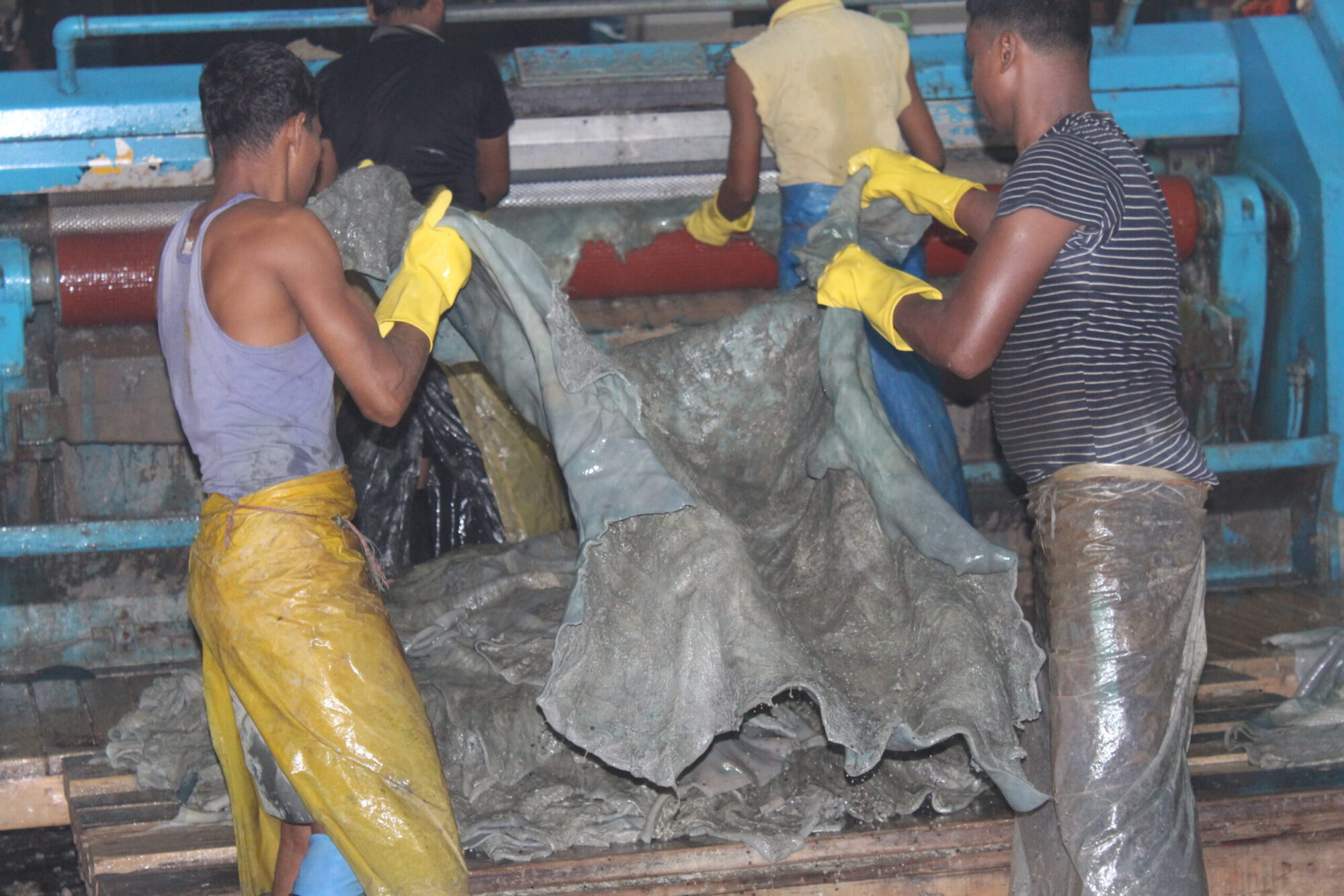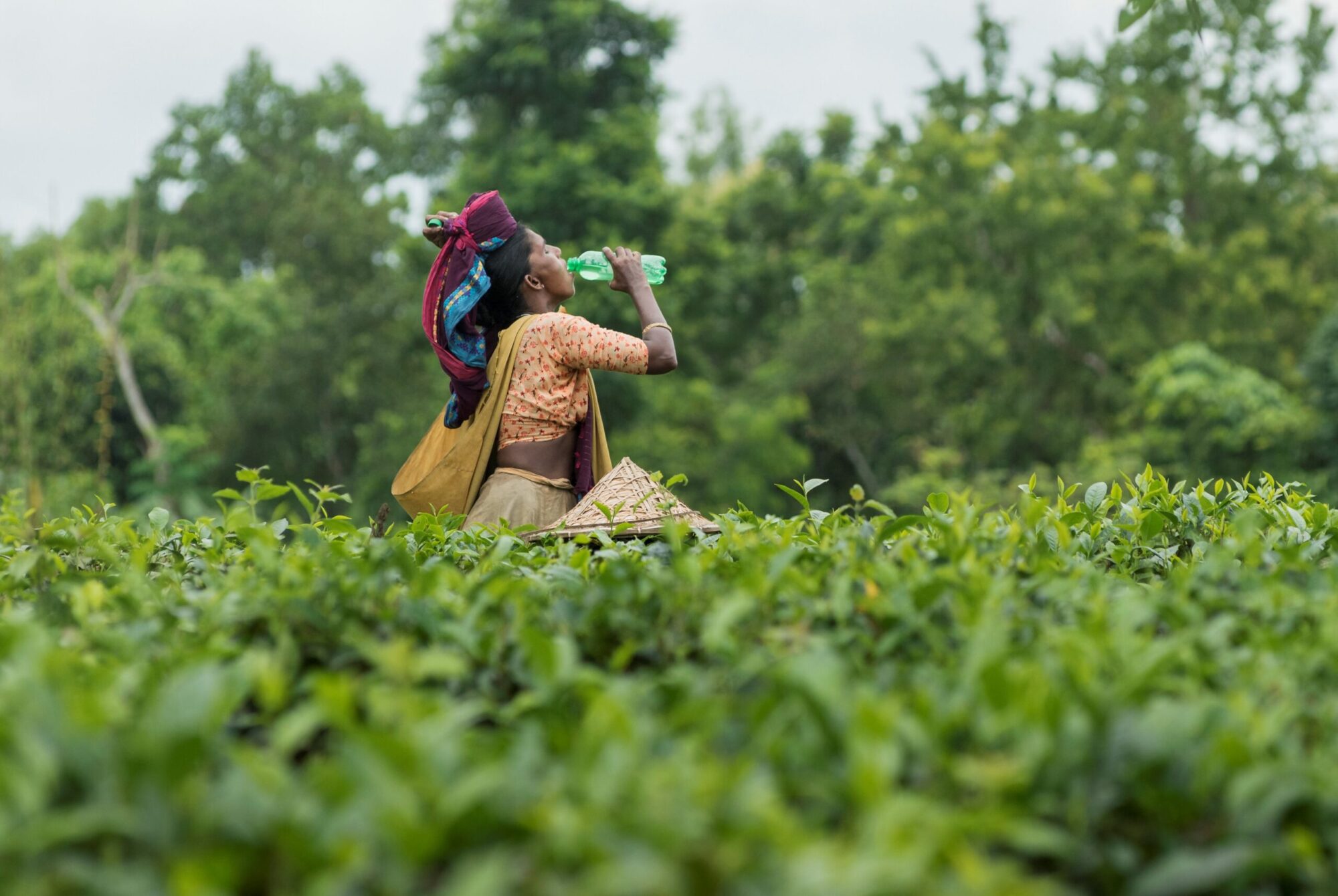Built on research commissioned by the Solidarity Center, the Nigeria Labor Congress (NLC) and Trade Union Congress (TUC) in May launched a heat stress campaign with other civil society groups and government in Abuja to address the impact of worsening heat on Nigeria's...
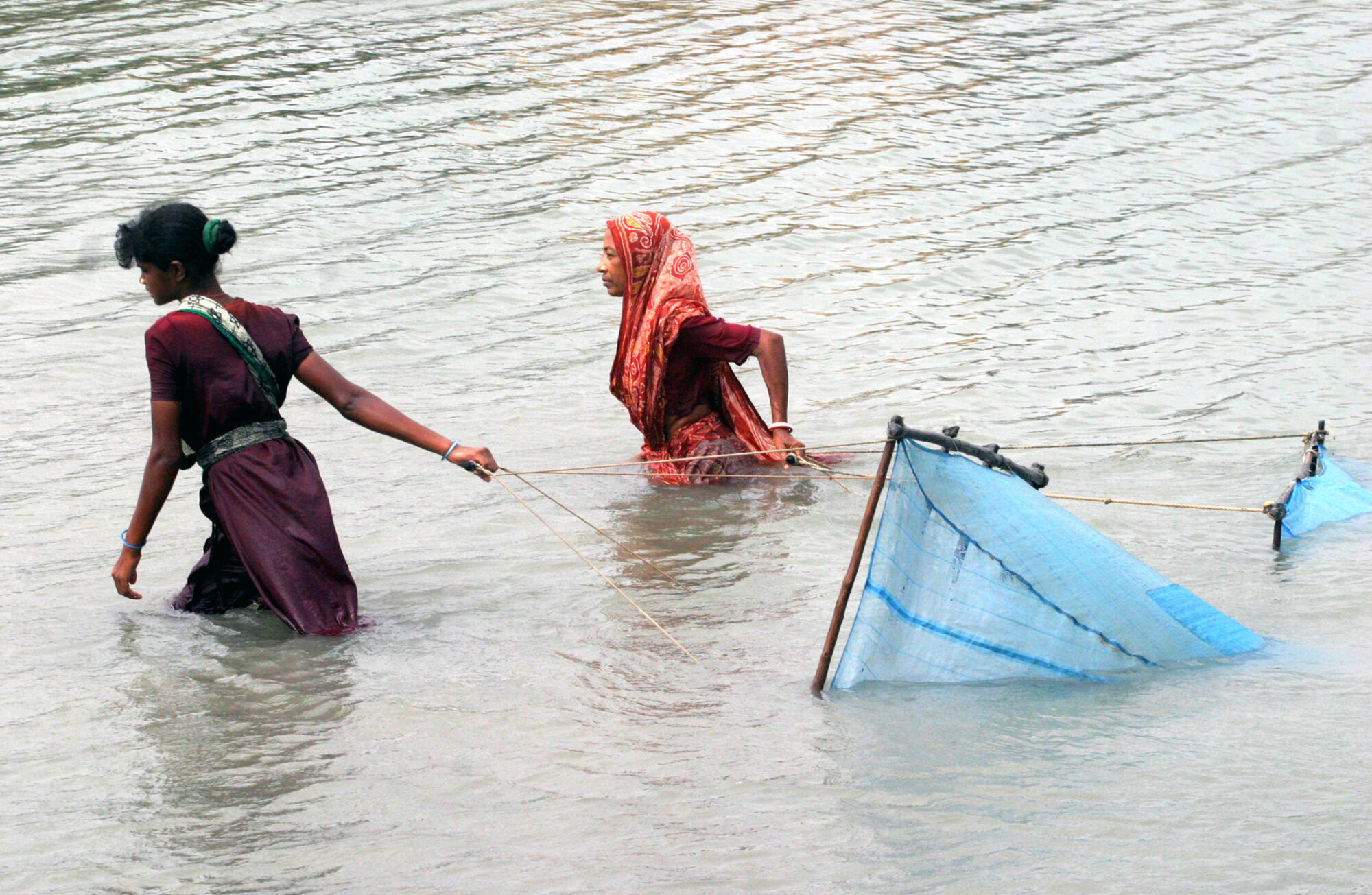
The livelihoods and safety of these women fishing shrimp from a river southwest of Dhaka are increasingly threatened by climate change. Given that 80 percent of Bangladesh’s land is low-lying floodplain, seas are rising and area cyclones are escalating in frequency and severity, one in every seven of the country’s people will be displaced by climate change by 2050. Credit: Reuters/Rafiqur Rahman– stock.adobe.com
The climate crisis impacts workers and their communities in a multitude of ways. Flooding, drought and extreme weather events push workers to migrate, often into low-wage jobs under dangerous conditions. Workers in highly polluting industries face the dual impacts of occupational health and safety hazards and environmental degradation, both of which put their families and communities at risk. Marginalized workers—including minority populations, workers with disabilities, women, youth, migrants and workers in the informal economy—are already experiencing some of the worst impacts of climate change and are often excluded from decision-making processes. Workers and their unions are uniquely positioned to help build a global climate justice movement, bolstered by their support from, and participation in, broad-based coalitions as well as long-term experience in people-centered policy and legislative advocacy in their respective countries. As governments and industries plan to transition to cleaner alternatives, workers and their unions must have a meaningful say in the process to ensure that a greener economy is also one that protects worker rights and advances decent work. The needs of workers and their communities must be at the center of climate-responsive policies and practices, including in designing a fair or just transition to a more equitable and sustainable economy as a way to mitigate the impacts of climate change and enable adaptation for impacted communities.
Our Approach
The Solidarity Center recognizes that addressing the climate crisis is critical to ensuring decent work and a strong labor movement in the future. In response, the Solidarity Center supports workers and their unions to:
- Develop worker-driven climate solutions and play a significant role in their implementation to protect hard-fought gains and advance worker rights in changing industries
- Use collective bargaining to advance cleaner, safer and more sustainable operations across sectors; and ensure an inclusive process that prioritizes the needs of workers and their communities in transitioning sectors.
- Build broader coalitions, securing the mutual commitment of climate, human rights and community organizations in the fight to win decent, unionized green jobs; build healthy, resilient and sustainable communities; and support worker rights
- Effectively participate in national, regional and global climate justice negotiations and hold policymakers and employers accountable for achieving a just transition to a cleaner economy that enables workers to enjoy their fundamental freedoms and rights; and
- Advance an enabling legal environment to achieve a just transition, recognizing the critical link between labor rights and environmental justice.
Our Programs Solidarity Center initiatives to advance climate justice include:
- Legal research on the new forms of collective representation and collective bargaining necessary to attain a just transition, and, with the Solidarity Center’s International Lawyers Assisting Workers (ILAW network), litigation of cases and legal processes and advocacy that advance worker rights
- Following a convening of palm oil unions from Colombia, Honduras, Indonesia and Malaysia, with environmental partners, implementation of a strategic plan by labor leaders from those countries that addresses issues with common actors and challenges within the supply chain, and pursues advocacy avenues for worker protection demands and engagement in policymaking on climate-change mitigation measures
- A coalition-building program in Colombia, Indonesia, Nepal, South Africa and Ukraine that raises awareness within and between unions, environmental and community groups about the environmental impact of the extractive and energy sectors in their respective countries while identifying opportunities for coalitions to advocate for safe, sustainable employment within these sectors
- Publication and dissemination of a report on the intersection of climate change and migration in Bangladesh that highlights for policy makers in that country how climate-related salinization has diminished the ability to grow rice and demonstrates that many workers are forced to migrate in search of jobs elsewhere or seek lower paying jobs in the shrimp industry
NEW EARTH DAY VIDEO: BANGLADESH TANNERY WORKERS WANT SAFER, HEALTHIER, GREENER JOBS
Marking this year's Earth Day, the Solidarity Center is launching a new video about Bangladesh tannery workers’ campaign for safer, healthier and greener jobs. Available in English and Bangla, the video provides a window into one of the country’s most dangerous jobs...
‘The Weight of the Heat’: Climate Change Further Burdens Bangladesh Tea Workers
At the end of a day picking tea leaves under the July sun, women walk from the hilly fields down an embankment and into a muddy stream, fully clothed, to bathe before they return to their company-provided tin homes where they prepare dinner for their families. The tea...
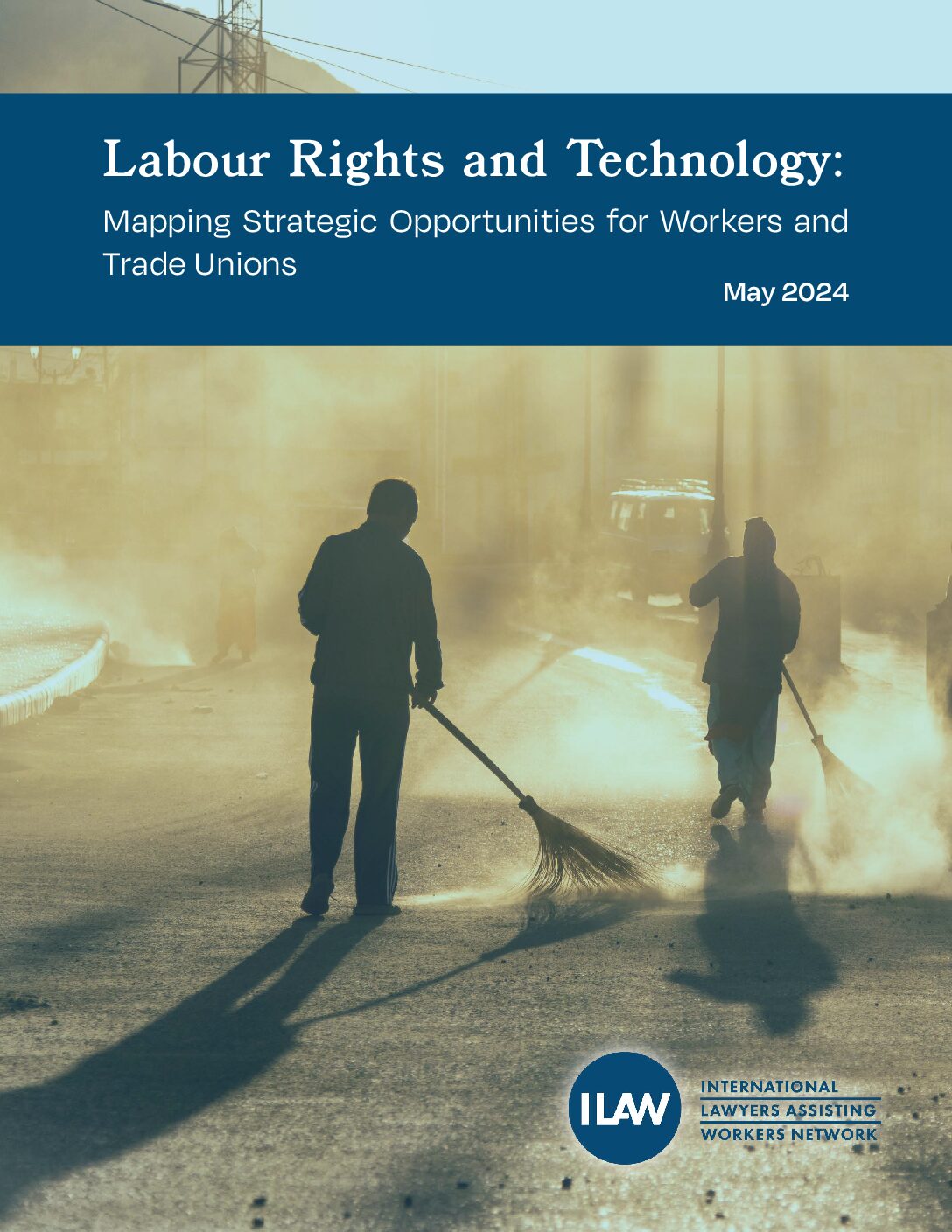
Labor Rights and Technology: Mapping Strategic Opportunities for Workers and Trade Unions
This ILAW Network issue brief, researched and drafted by Dr. Barbora Černušáková, maps some of the legal initiatives and strategies undertaken by workers and unions, and outlines opportunities for workers to challenge breaches of technology-driven labor rights through...
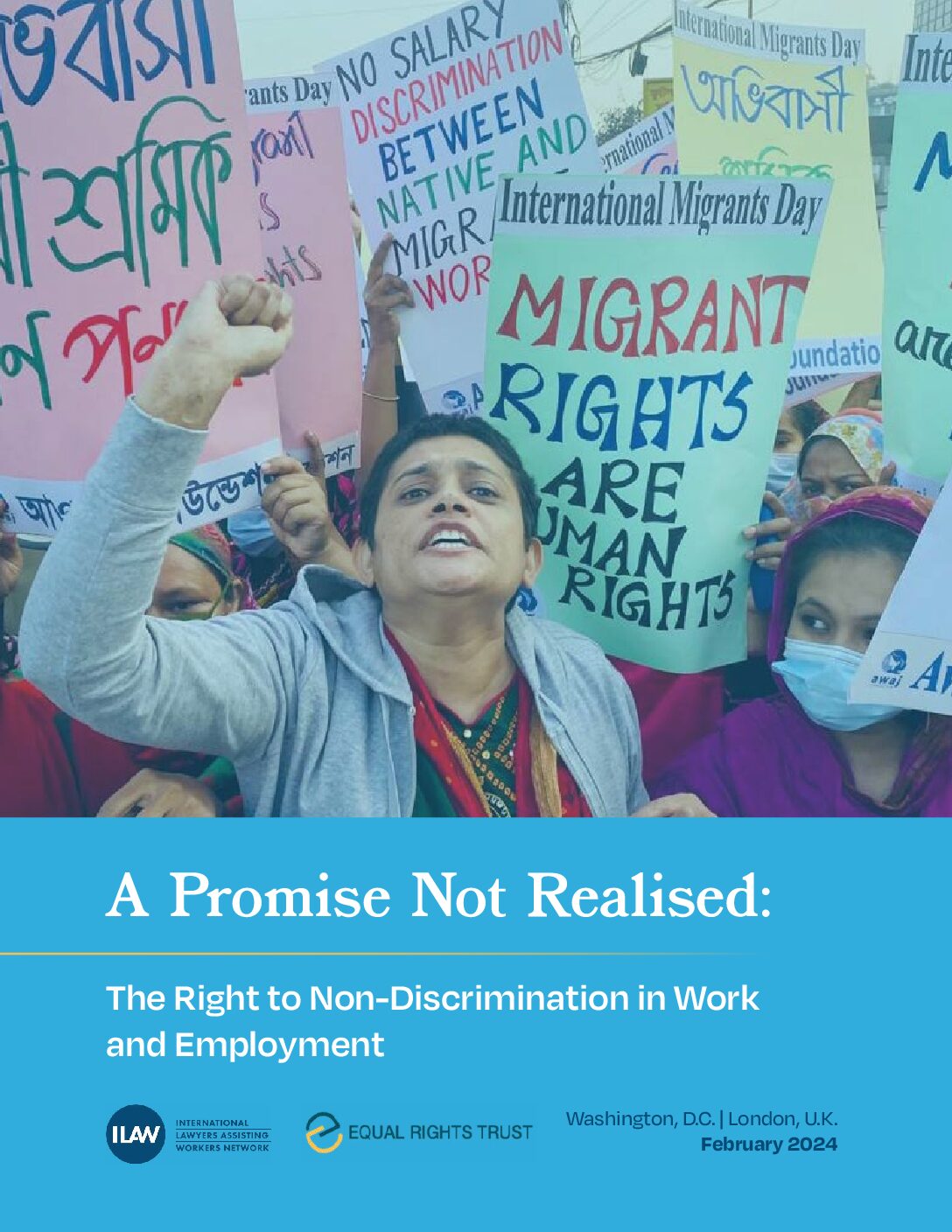
A Promise Not Realised: The Right to Non-Discrimination in Work and Employment
The ILAW Network is pleased to present our new report, A Promised Not Realised: The Right to Non-Discrimination in Work and Employment – a collaboration of the ILAW Network and Equal Rights Trust (ERT). This issue brief focuses on two main questions: (1) why does...
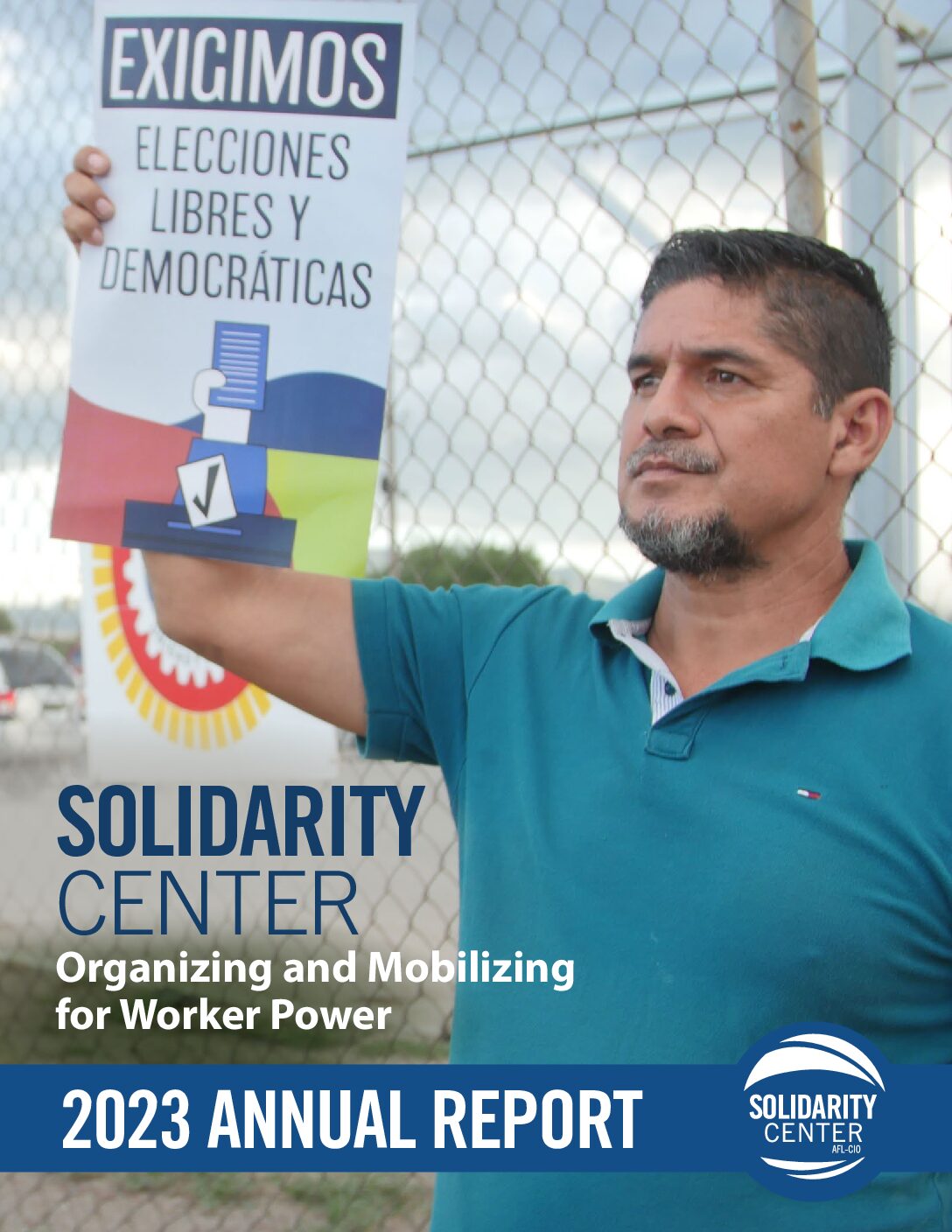
2023 Annual Report
In 2023, the Solidarity Center supported workers as they took on exploitative multinational companies and robot algorithms, demanded their governments tackle social ills and deliver on promises, and fought for justice in environments increasingly dangerous to those...
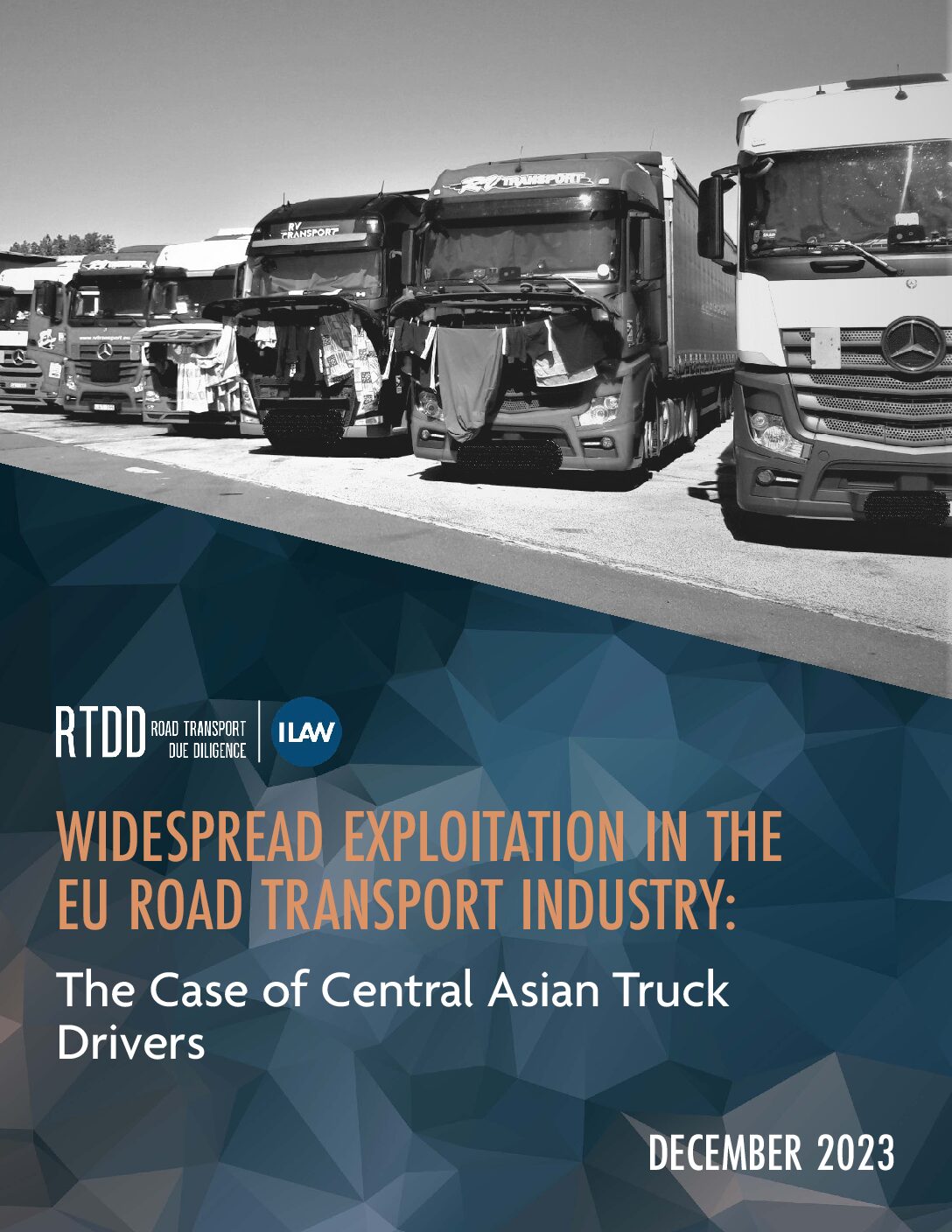
Widespread Exploitation in the EU Road Transport Industry: The Case of Central Asian Truck Drivers
The ILAW Network is pleased to present our new report, Widespread Exploitation in the EU Road Transport Industry: The Case of Central Asian Truck Drivers, written by Imke van Gardingen and Edwin Atema of Road Transport Due Diligence (RTDD). This research was supported...
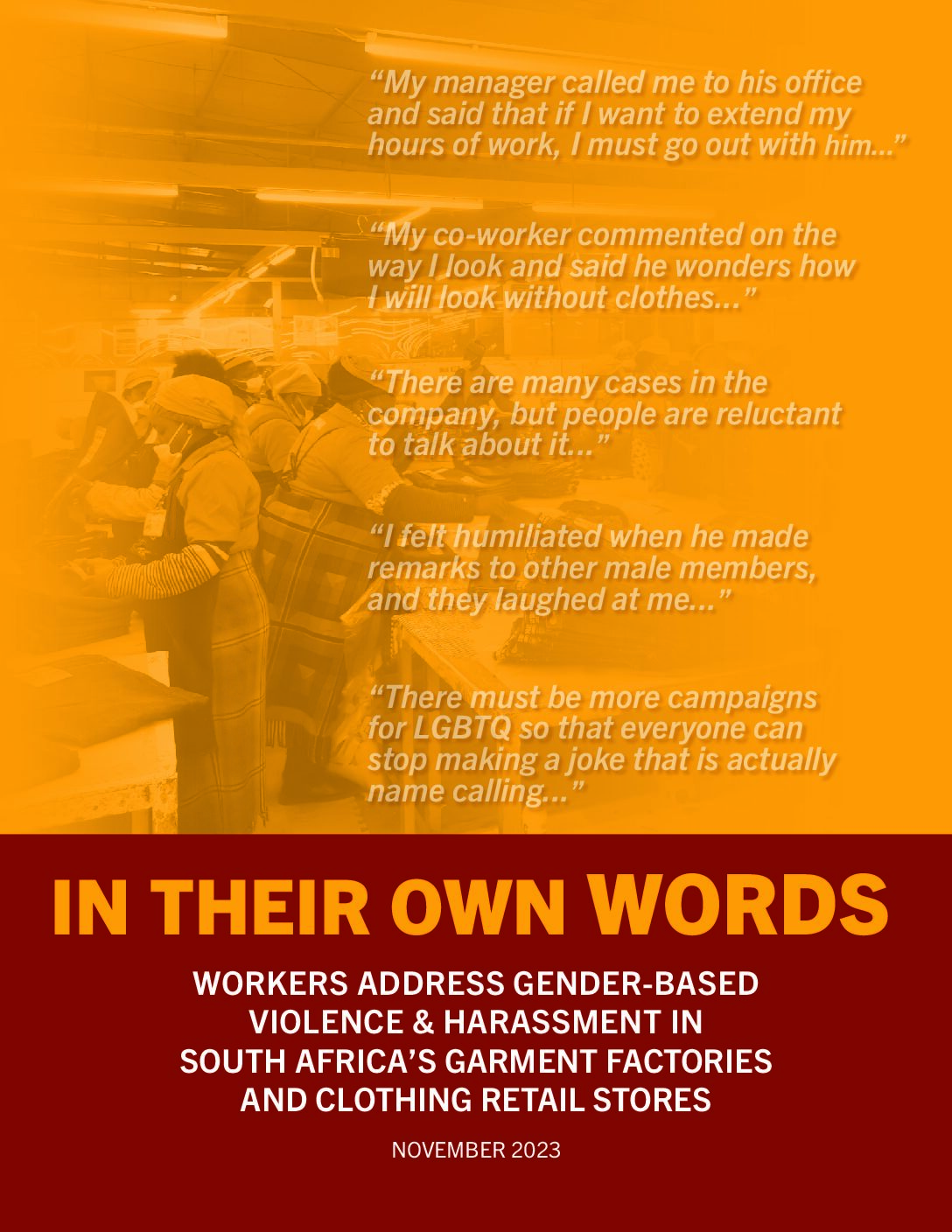
In Their Own Words: Workers Address Gender-Based Violence & Harassment in South Africa’s Garment Factories and Clothing Retail Stores
In South Africa, 98 percent of women garment and retail workers surveyed in 2022 said they had experienced one or more forms of gender-based violence or harassment, including physical abuse, unwanted sexual advances, psychological abuse, bullying and rape. To better...
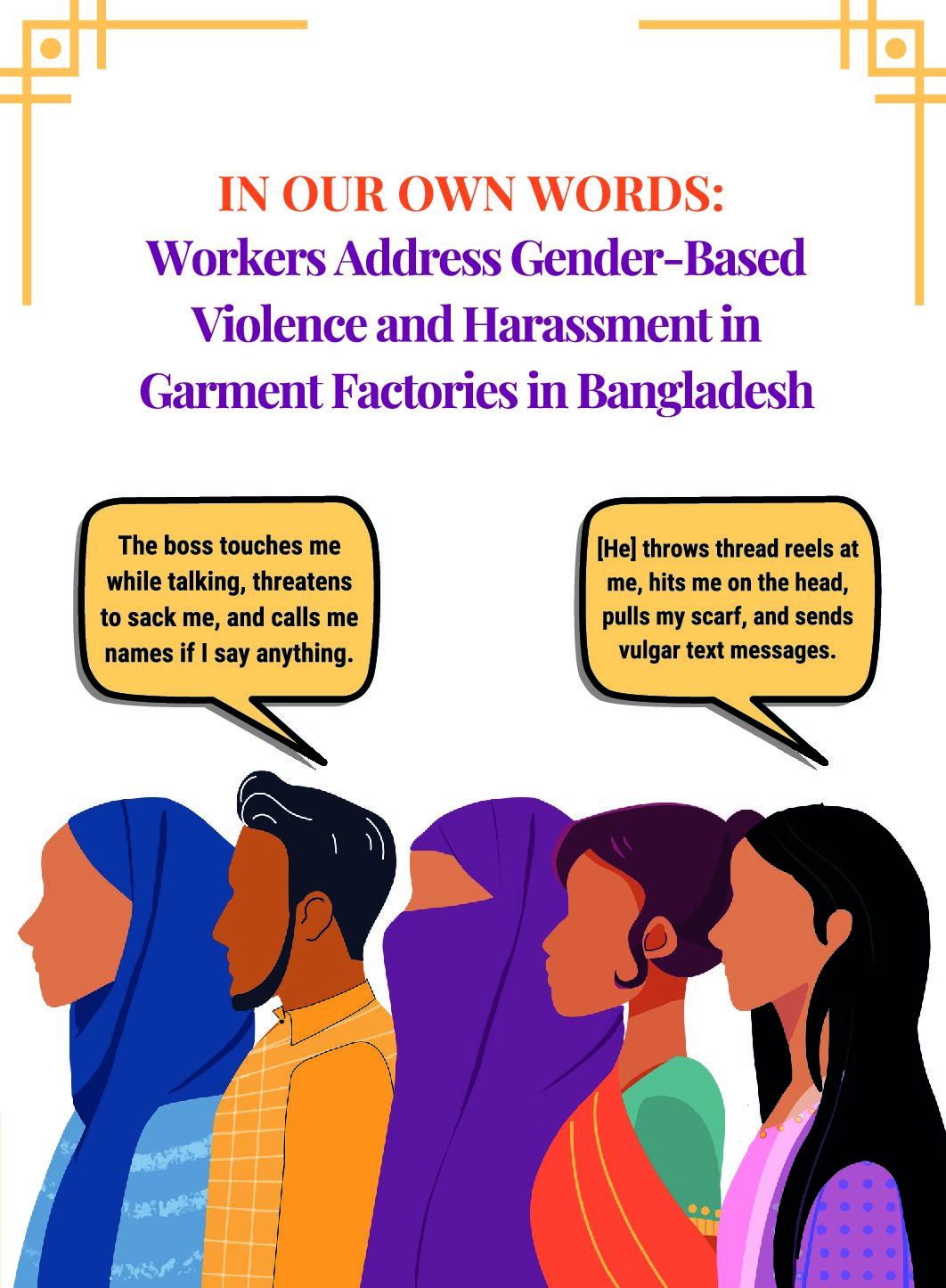
In Our Own Words: Workers Address Gender-Based Violence and Harassment in Garment Factories in Bangladesh
In Bangladesh, 80 percent of women garment workers surveyed in 2019 reported they had experienced or witnessed sexual harassment, molestation or assault, endured extreme verbal abuse or witnessed a factory manager or supervisor abuse and harass other women in the...


